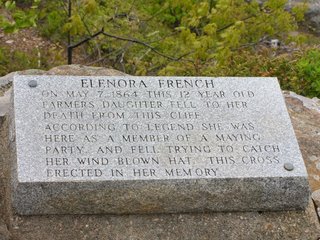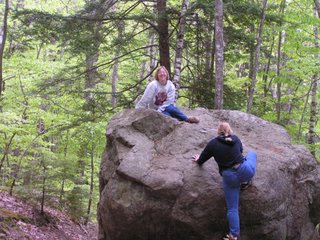On Hating Hospitals
My uncle is in the hospital. Nothing serious, it is to be hoped. But a couple days after having a stent put in his heart, he started to have chest pains again. So they have shipped him to the main cardiac hospital in the region, which happens to be some 50 miles away, there to wait until the doctors get around to him, which, considering that it is a holiday weekend and his doctor is on vacation, may be some time. When my dad mentioned a plan of going down to see him tomorrow, my immediate, unconscious and unspoken, response was, "Ugh! I hope I don't have to go."
I am actually quite fond of my uncle, but, like most of the public, I find hospitals viscerally abhorrent. I don't think it is merely because hospitals are associated with sickness and death and are therefore depressing. Like many writers, I am of a morbid disposition and find depressing things fascinating. (You will notice that I said many writers, not all, so my more cheerful Smudgian comrades need not consider themselves insulted.) Although it may have something to do with the fact that this is the very same hospital where my grandmother patiently waited to die a few years ago. She, who had no particular quarrel with death but hated hospitals passionately, wanted to be allowed to die at home, which she eventually was. The week or so she was in that hospital, after we learned that she was dying, was horrible, but not because she was dying. The hospital itself, the labyrinth of steel and glass and tile, seemed like the enemy, because it was built for the sole purpose of thwarting death, and the inevitability of death was in such a context an obscenity. Only outside of the labyrinth, among untrimmed houseplants and dusty bookshelves, could her death be real, could it be dealt with and grieved over.
None of which answers the original question of this post. But, as I once observed in frustration over a Noe assignment: "I don't have answers; I have questions. That's why I'm a Lit. major!"
I am actually quite fond of my uncle, but, like most of the public, I find hospitals viscerally abhorrent. I don't think it is merely because hospitals are associated with sickness and death and are therefore depressing. Like many writers, I am of a morbid disposition and find depressing things fascinating. (You will notice that I said many writers, not all, so my more cheerful Smudgian comrades need not consider themselves insulted.) Although it may have something to do with the fact that this is the very same hospital where my grandmother patiently waited to die a few years ago. She, who had no particular quarrel with death but hated hospitals passionately, wanted to be allowed to die at home, which she eventually was. The week or so she was in that hospital, after we learned that she was dying, was horrible, but not because she was dying. The hospital itself, the labyrinth of steel and glass and tile, seemed like the enemy, because it was built for the sole purpose of thwarting death, and the inevitability of death was in such a context an obscenity. Only outside of the labyrinth, among untrimmed houseplants and dusty bookshelves, could her death be real, could it be dealt with and grieved over.
None of which answers the original question of this post. But, as I once observed in frustration over a Noe assignment: "I don't have answers; I have questions. That's why I'm a Lit. major!"




